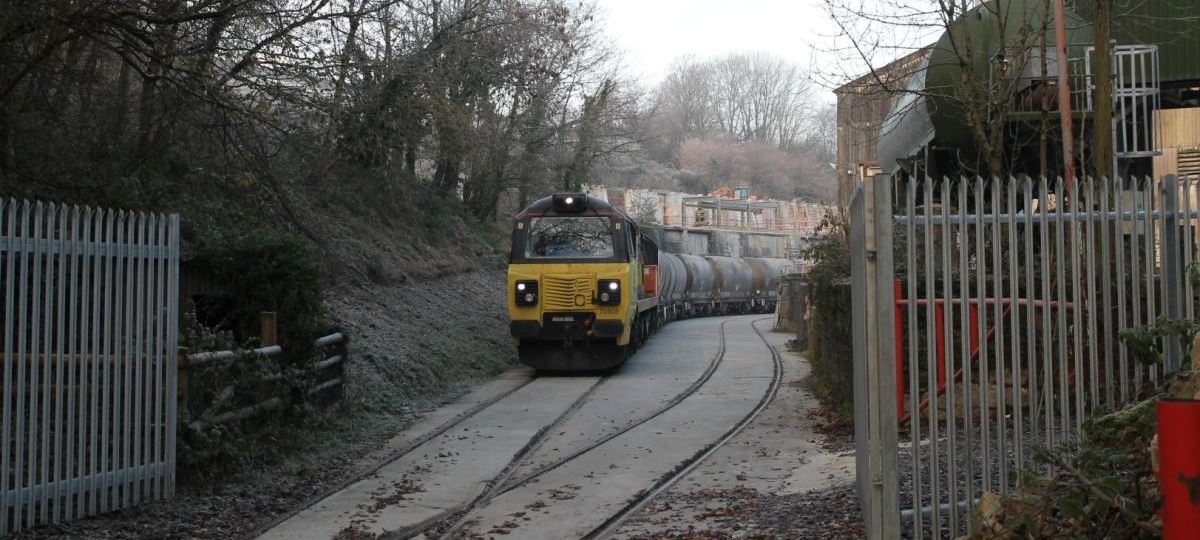
CLIMATE CHANGE
Transport
As a business we are committed to reducing the impact of our transport operations with a focus on moving from road to rail movements being at the heart of this. In 2016 we moved 9m tonnes by rail, up from 8.2 in 2015. This has been aided by a 20% (200t) increase in our train capacities and we know that the usage of fuel per tonne significantly reduces when we move tonnage over as few trains as possible.
Reopening the Aberthaw rail facility means that rail will be used to transport cement in Wales for the first time in more than 20 years. Moving materials by rail reduces road haulage by 25-30 truck loads per train, equating to over 500,000 road miles per year. At Aberthaw which means around 2,500 truck movements per year will be replaced.
Bulk cement, which was previously transported by road, will now be loaded onto freight trains and dispatched via rail to the company’s depots across Wales and the south west of the UK. Alun Cairns, the MP for the Vale of Glamorgan, has been a long time advocate of re-introducing rail to the cement plant and was delighted to hear how three trains a week are now leaving the site
He said: “This is a hugely important step for local road safety and air quality. I want to congratulate Tarmac for acting on my representations to them”.
Plant manager Chris Bradbury, said: “The rail facility signifies a major step for us. Reducing our road movements by 25 per cent is a significant achievement and it puts us in an even better position to supply materials to our customers across Wales and the south west in a more sustainable way.”
Jane Hutt, assembly member for Vale of Glamorgan, who officially opened the facility added: “It’s great to see this show of confidence by Tarmac in its Aberthaw operations which will positively impact the environment – both locally and further afield.
“Investing in infrastructure is key to supporting economic growth and it is hoped that more people locally will benefit from Tarmac’s support.”
